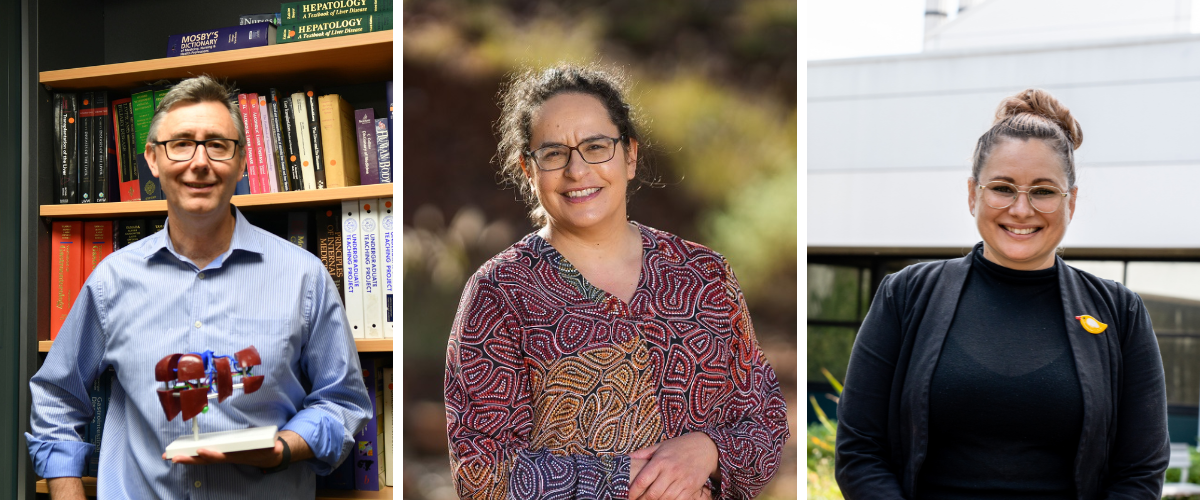
Tackling liver disease in remote Indigenous communities and breaking down barriers to education, training and career opportunities for Aboriginal and Torres Strait Islander youth will be the focus of two new Flinders projects awarded funding from the Medical Research Future Fund (MRFF).
The research projects will work towards improving the health of Aboriginal and Torres Strait Islanders and have all involved working closing with First Nations people from the start, listening to the lived experience of people at every stage.
Professor Alan Wigg and Associate Professor Tamara Mackean ($2.96 million) will explore new ways to diagnose and manage liver disease in remote communities using novel non-invasive technologies
Chronic liver disease is the third largest contributor to the gap in life expectancy caused by chronic disease between Indigenous and non-Indigenous Australians says Associate Professor Tamara Mackean, College of Medicine and Public Health.
The project will test novel non-invasive technologies for detecting patients at high risk, and surveillance fior liver disease and hepatocellular cancer.
“Serum-based fibrosis tests, vibration controlled elastography and the use of portable ultrasound equipment will enable tests to be performed in remote communities that can accurately screen for liver fibrosis and cirrhosis without the need for an invasive liver biopsy,” says Professor Alan Wigg, from the College of Medicine and Public Health, and Hepatology and Liver Transplantation Medicine Unit, Flinders Medical Centre, Southern Adelaide Local Health Network.
“New models of care that use these point of care tests can guide patient diagnosis and management On-Country.
“Despite the promise of this technology to perform remote community-based testing and to facilitate linkages to treatment, this project will be the first study to investigate their effectiveness across the full spectrum of liver diseases in remote Indigenous Australian communities,” says Professor Wigg.
With early detection, most liver diseases can be treated in community with treatments that have been shown to reduce mortality.
Associate Professor Kalinda Griffiths ($506,978) will lead an evaluation of The Ramaciotti Regional and Remote Health Sciences Training Centre (The Centre) to identify education and training so that an improved education framework for youth and students in remote Northern Territory can be developed.
“In regional and remote areas of Australia, hurdles to education are exacerbated by the unique Northern Territory environment. This project provides an opportunity to assess the impact of The Centre so we can better address the intersecting and cumulative needs of students in that region. Importantly, it will also work to improve the health and wellbeing outcomes of Aboriginal and Torres Strait Islander peoples,” says Associate Professor Griffiths.
Funding is provided through the Indigenous Health Research Fund – an 11-year, $160 million investment from the Medical Research Future Fund that supports First Nations-led research to tackle health issues facing First Nations people and help close the health and mortality gap.
For more information visit here.

